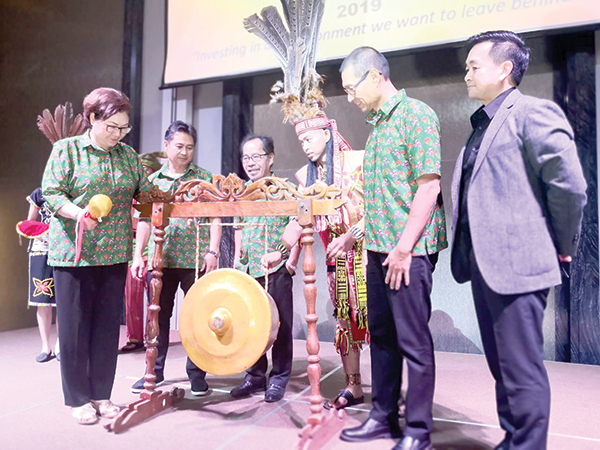Sabah as Asean eco-tourism hotspot
KINABATANGAN: Sabah is proud to host the Asean Tourism Human Resources Management and Development Network for Ecotourism Programme here for 25 participants from Asean member States to experience forest restoration, lake conservation and wildlife experience over four days and three nights, ending Oct 23.It also marks the Federal Ministry of Tourism, Arts and Culture’s aim to position Sabah as an ecotourism hotspot especially with the Visit Malaysia Year 2020, as it organised the event attended by hundreds. The Federal Minister hails from Sabah’s East Coast nearby where the event took place.
Officiated by State Assistant Minister of Tourism, Culture and Environment Assaffal P. Alian, the programme aimed to share Malaysia’s experience and expertise on best practices in ecotourism and to provide a platform for discussion and engagement among Asean tourism players.Assaffal said: “The State Government is eager to boost Sabah’s tourism industry especially on ecotourism, and the Kinabatangan area has been chosen as one of the sustainable tourism sites for others to learn in their bid to protect wildlife and promote green tourism.“The Kinabatangan River sustains one of the world’s richest ecosystems, being home to Borneo’s indigenous orangutan and proboscis monkey where it is only one of two known places in the world where 10 species of primates are found, and where all the eight species of hornbill found in Borneo thrive.”He stressed that ecotourism is a high-value sub-sector that offers genuine experience and adventure that is unique to a particular locality, and has the potential to become a premier destination, which brings in high-value tourists to the country.“There’s a need to protect and promote these nature-based attraction products to ensure long-term sustainable benefits to the environment.
“I consider this programme is important considering the significant commitment by Asean member States to cooperate in sharing their experience and expertise on the best practices in ecotourism for the betterment of Asean region and protect the environment for future generation,” Assaffal P. Alian said.Ministry of Tourism, Arts and Culture’s Secretary-General Datuk Isham Ishak said in closing the event, “We aim for Malaysia to be ‘The Capital of Smart Ecotourism Destination.”“This programme is also in-line with the Malaysian Government’s efforts in promoting Sabah as an ecotourism destination with its rich natural environment and cultural diversity.”“I am confident that the Asean Tourism Human Resources Management and Development Network for Ecotourism Programme serves as an impetus towards the enhancement of environmental protection, preservation, and conservation in the Asean region,” Datuk Isham Ishak hoped.The global competitiveness reports and surveys reveal that Asean’s natural and cultural heritage is one of its key competitive strengths.The main weaknesses are in the areas of infrastructure and business environment, regulatory framework and human resources.Developing quality tourism destinations and products remains a major challenge for Asean. The weak performance of the less developed Member States is reflected in the asymmetric nature of the distribution of tourism flows within the region.The challenge therefore is to raise the competitiveness of the tourism sector in the affected Asean member States to bring about a more inclusive distribution of benefits relative to factors such as population and resource capacity.Thus, the focus areas to raise competitiveness are marketing, product development, investments, quality tourism, human resources, connectivity and infrastructure and travel facilitation.
Source: Daily Express




